Search Results
Showing results 621 to 640 of 805
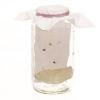
A Slice of Apple Fly
Source Institutions
In this activity, learners build an instrument for catching and observing flies. Learners act as entomologists, attract flies into a jar using a slice of apple, and then observe the flies' behavior.
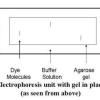
Gel Electrophoresis of Dyes
Source Institutions
In this experiment related to plant biotechnology, learners discover how to prepare and load an electrophoresis gel.

An Interdisciplinary Deer and Human Population Study
Source Institutions
This activity helps the learner answer the question: "What environmental problems arise due to animal and human overpopulation and what might need to be done to combat these problems?" Learners play a

Supermarket Science: The King Sooper Lab
Source Institutions
In this investigation, learners gather information on various food items during a field trip to a local grocery store.

Scavenger Hunt: A Group Collection
Source Institutions
In this activity, learners are divided into teams.

Paper making: a craft and a chemical engineering major
Source Institutions
In this activity, learners explore the question "What is paper?" Learners discover the processes and materials required to make paper while experimenting with different recycled fibers and tools.
Waves: An Alternative Energy Source
Source Institutions
In this data analysis and environmental science activity, learners evaluate the feasibility of wave energy as a practical alternative energy source using ocean observing system (OOS) buoys.

Taking Its Temperature
Source Institutions
In this activity (pages 5-7), learners investigate the properties of smart materials, which are materials that respond to things that happen around them.

Photosynthetic Pictures Are Worth More Than a Thousand Words
Source Institutions
This activity provides an opportunity for learners to observe and examine how carbon dioxide, water, and light produce glucose/starch through a process called photosynthesis.
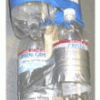
Portable Potable Pressure
Source Institutions
In this activity, learners use plastic water bottles, wood, and water to build an inexpensive and portable tool to demonstrate one atmosphere of pressure at sea level.
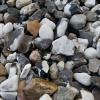
What's the Matter
Source Institutions
In this activity, learners identify different classes of matter based on physical properties.

Resonant Rings
Source Institutions
Things that are different sizes and stiffness vibrate differently, and in this Exploratorium Science Snack, you'll see how rings of various diameters react to vibration and external forces.

AM in the PM
Source Institutions
In this activity, learners will listen to as many radio stations as possible to discover that AM radio signals can travel many hundreds of miles at night.
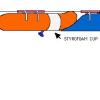
Balloon Staging
Source Institutions
In this activity, learners simulate a multistage rocket launch using party balloons, fishing line, straws, and a plastic cup.

Lotus Leaf Effect
Source Institutions
This is a demonstration about how nature inspires nanotechnology. It is easily adapted into a hands-on activity for an individual or groups.
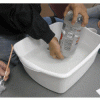
Inflate-a-mole
Source Institutions
In this activity, learners conduct an experiment to find the volume of one mole of gas. Learners capture sublimated gas from dry ice in a ziploc bag and use water displacement to measure its volume.

Human Impact on Estuaries: A Terrible Spill in Grand Bay
Source Institutions
In this activity, learners make a model of a pollution spill that occurred at Bangs Lake in Mississippi and measure water quality parameters in their model.

Electrostatic Water Attraction
Source Institutions
In this activity, learners conduct a simple experiment to see how electrically charged things like plastic attract electrically neutral things like water.

Suminagashi: Floating Ink Paper Marbling
Source Institutions
In this activity, learners try to float ink on the surface of water to create a pattern and then capture it with absorbent paper.
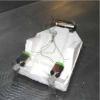
Airboat
Source Institutions
In this activity related to Newton's Laws of Motion, learners build a boat powered by a propeller in the air.
